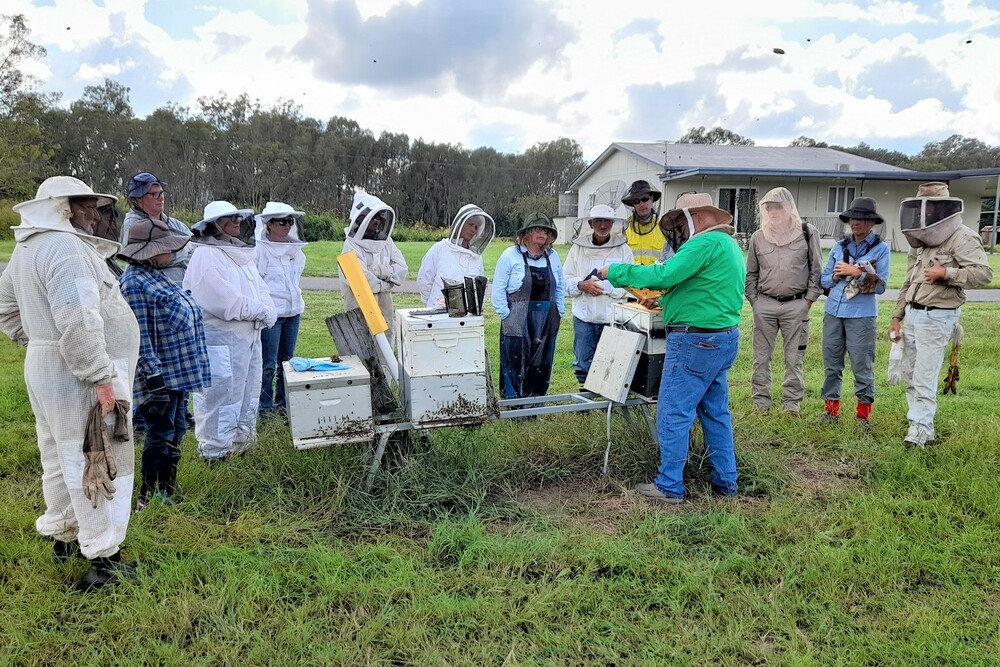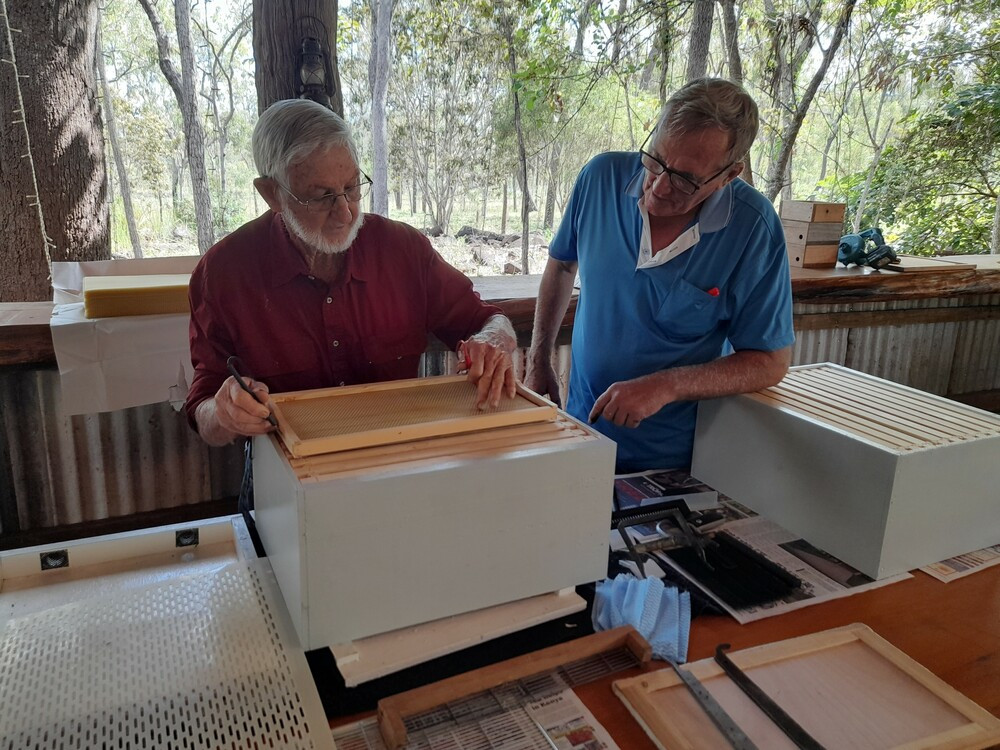On The Land
25 May, 2022
Discovering the power of pollinators
A GROUP of 17 bee-keeping enthusiasts have travelled from across the Tablelands and as far south as Cardwell to attend a two-day Beekeeping for Beginners workshop at the Ringers Rest venue, Mareeba.

Attendees learned how to construct and position hives, information about hive society and bee behaviour and about common hive pests and diseases, from Cairns-based experts, Graham Haigh and Wim De Jong.
On day two, they donned their protective beekeeping suits and headed out on a field day to Emerald Creek to perform a hive inspection, checking honey flows, the health of the queen and for any sign of pests such as the deadly honey bee parasite, the Varroa mite. Workshop coordinator Sarah Stevens, an Intensive Agriculture Project Officer with Gulf Savannah NRM at Mareeba, said the course was aimed at addressing North Queensland’s current shortage of both honey bees and pollination bees.
Dr Anneke Veenstra, senior lecturer at Deakin University’s School of Life and Environmental Science, said honey bees were the world’s most prolific pollinators of food crops, pollinating 70 of the around 100 crop species, including fruit, vegetables, oils and nuts, that feed 90 per cent of the world. “So, as far as important species go, honey bees are at the top of the list,” she said. “There’s been an extraordinary decline in honey bee colonies around the world in recent years and a shortage of queen bees across the country is making it difficult for beekeepers to rebuild and increase their hive numbers.”
Ms Stevens said workshops like the one at Mareeba were a great confidence builder for the many people in the community who were interested in having their own hives. “People are interested in having a hive but they can’t tell if their bees are getting enough food, if their queen is performing well or if their hives are being infiltrated by pest and diseases,” she said. “There is a massive demand for pollination bees at the moment. Last year an estimated 227,000 beehives or more than nine billion bees were trucked into Victoria alone, to pollinate trees in their almond plantations. “We need to educate people how to encourage all our native pollinators, the native bees, butterflies, wasps, flies and other insects, by using integrated pest management in orchards and crops, such as night spraying and by planting banks of trees near paddocks as pollinator habitat. “Our participants generally come out of the course pretty fired up and we hope some of them will go on to become commercial beekeepers. “We helped some of last year’s graduates with a subsidised starter kit which included a hive, bees, suit and tools and they have all gone very well.”
Course participant, Brian Dick from Atherton, said the workshop was terrific. “Our instructors had such a wealth of knowledge about beekeeping in North Queensland specifically and passed on loads of tips and tricks about managing hives up here,” he said.
Bees are keystone species. The 20,000 species that exist globally play a vital role in preserving biodiversity and ecosystem health and without them, many ecosystems would be altered or cease to exist altogether. Honey and other hive products generate around $100 million per year in Australia.
The contribution of honey bees to agriculture through pollination services is estimated to be 140 times this figure and was valued at around $14.2 billion in Australia in 2017.
This Gulf Savannah NRM event was part of their Powerful Pollinators Project, supported by Smart Farms Small Grants and funded through the Australian Government National Landcare Program.
A Worm-farm Workshop at Emerald will be held in late July, early August.



